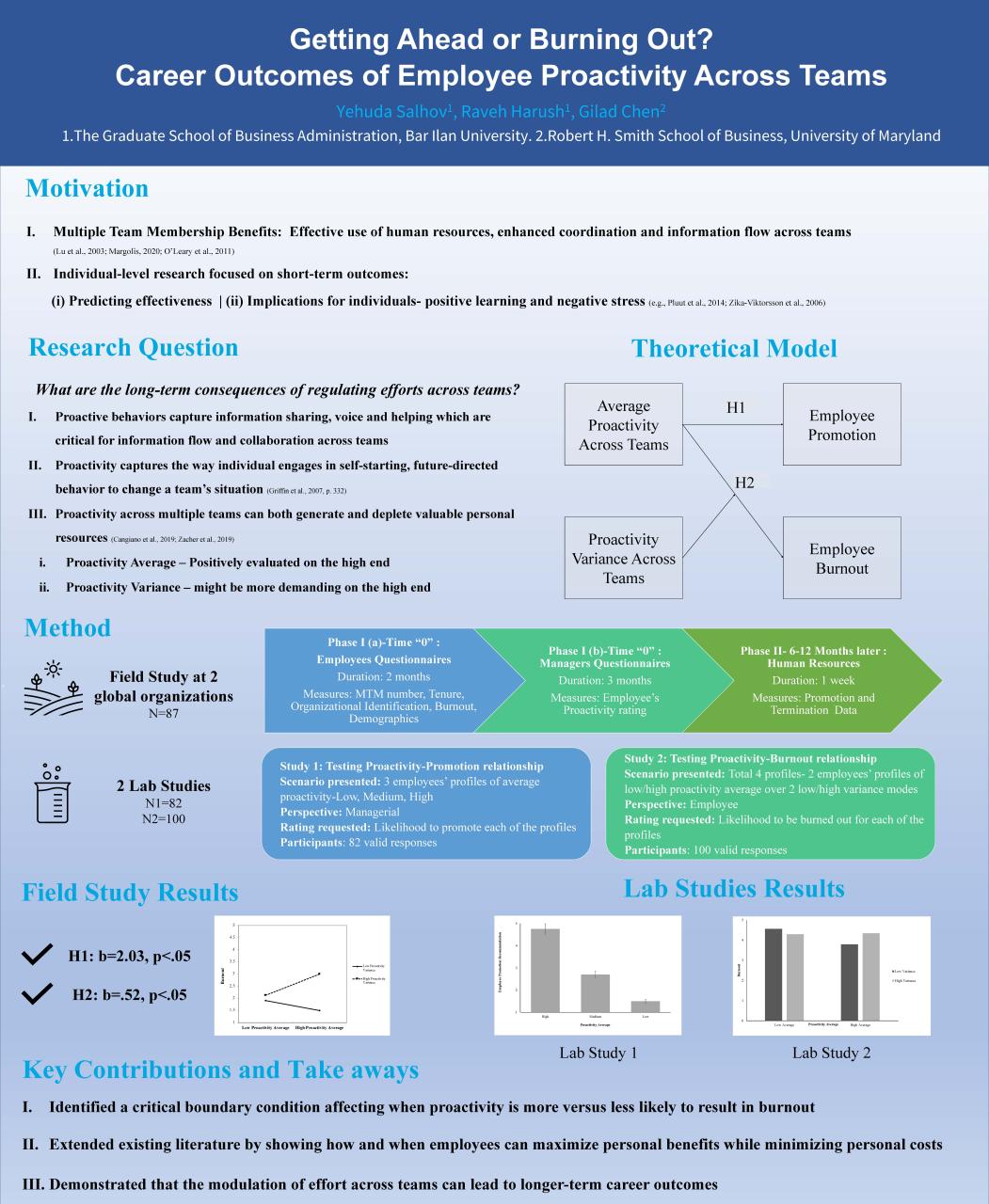Getting Ahead or Burning Out? Career Outcomes of Employee Proactivity Across Teams

Abstract
Multiple team membership structures, in which employees work simultaneously in multiple teams, enable organizations to manage complex tasks and large programs efficiently. For these teams to succeed, their employees need to be proactive, and specifically share information and ideas as well as help teammates across teams. However, proactivity across teams can be a double-edged sword for employees, leading to both positive (i.e., promotion) and negative (i.e., burnout) career outcomes. Using a multi-source field study and two scenario-based experiments of employees in cross-functional organizational structures, we examined how average proactivity across teams impacts career outcomes, and whether proactivity variance (i.e., the extent to which employees are consistent or inconsistent in their proactivity across teams) acts as a boundary condition. Specifically, building on resource-based views of self-regulation and automaticity of behaviors, we propose that employees are most likely to be promoted and least likely to experience burnout when they are highly and consistently proactive across teams. We discuss our contributions to the career, teams, and self-regulation literature and provide practical guidance for organizations utilizing multiple team memberships.



